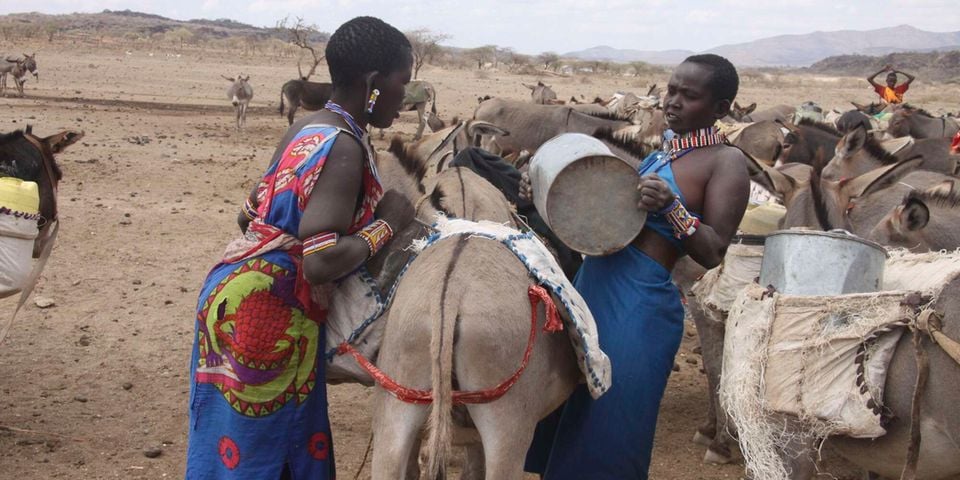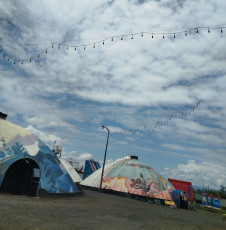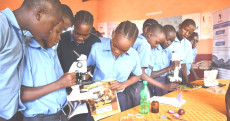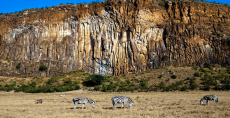- Every day is a struggle to exist, from the drought that never seems to end, land that is overgrazed, bare soils with big plumes of dust, emaciated cattle and goats, a people that the government forgot, no public hospital or education services, and those that exist are hundreds of kilometers away...,” Gatwiri says.
- “It's so painful and heartbreaking seeing a young person waste away, doing nothing at home and this is for those who haven't joined substance/drug abuse or crime. Their mothers are all over worried, and doing all they can to secure jobs for their children, but efforts do not amount to anything. It is a lie and avoidance when the government tells people to create jobs- Gatwiri.
An X user by the name of Gatwiri has come out to pose the question of equal distribution of resources in the country with her clear and profound observation of the state of the nation.
She based her arguments on three towns that she gets to cross over while on transit at most times and has aroused numerous reactions and criticisms on the state of development in most parts of the country.
“I live, work, and travel between Nairobi, Kajiado, and Meru counties frequently. Here's what stands out the most about each county (for me)," she said.
Meru: small farms and high unemployment rate.
“Farms have become so small, they're not commercially viable. This plus failed rainfall seasons the last couple of years, most crops are for subsistence, and some stopped cultivation altogether. Dairy farming is still strong, even in the villages, but there's a real struggle with fodder.”
She speaks of the state of unemployment in the area, recognizing how when one stops to greet the people, all they do is ask for jobs for their children.
“Unemployment is so bad though, I know young people, even my own relatives, wasting away at home. You stop by to greet people and everyone is asking for a job for their child.”
She continues to narrate the predicament in the villages;
“It's so painful and heartbreaking seeing a young person waste away, doing nothing at home and this is for those who haven't joined substance/drug abuse or crime. Their mothers are all over worried, and doing all they can to secure jobs for their children, but efforts do not amount to anything. It is a lie and avoidance when the government tells people to create jobs.”
Kajiado: Harsh environment conditions and literal fight to eke a living
“Growing up in a relatively green area at a time when rains were consistent, and times were easier, I've never encountered struggle for survival until I lived in rural Kajiado. I will not reveal where exactly but it’s somewhere close to Taveta and Tanzania border,” Gatwiri narrates.
She goes on to expound on the struggle for existence among the people of rural Kajiado and how the government has forgotten them for so long despite their existence in the country of their origin.
“Every day is a struggle to exist, from drought that never seems to end, land that is overgrazed, bare soils with big plumes of dust, emaciated cattle and goats, a people that the government forgot, no public hospital or education services, and those that exist are hundreds of kilometers away...,” she says.
It seems like a losing battle for the people, the national government, and the county government at large as the struggle grows unbearable to them.
“And every food you put on your table, it is out of your blood, sweat, and tears... Despite paying so much in taxes including Local County Government taxes when selling cattle/goats. In fact, the government is fighting you and your way of life. So you are fighting both the government and the environment (and conservation folk), and it feels like a losing battle. And like there's no one in your corner, it's a lonely battle.
Their saving grace is water, a bit of water, that migrant farmers come to do irrigation with. They leave some money circulating in the local economy, but most profits are exported back.”
Nairobi: The City of Extremes
Gatwiri calls Nairobi the city of extremes with the label of Kenya A and Kenya B, that is quite an interesting observation, as people can go to extremes to make ends at the expense of others without considering their fellows.
“It’s always so interesting to me how there are places you can live in Nairobi that would shield you from problems in this country, we call it Kenya A. In Kenya A, you've access to hospitals that don't have long patient queues, with modern equipment and highly trained staff. You've access to schools and curriculums of your choice. To efficient and modern transport systems. You are not fighting the environment, and in fact, all systems are catered to you and your money.”
Many people have wished for Kenya A life like Gatwiri but to no avail, since from where they stand they don’t see any development coming their way yet they vote in after every 5 -year election cycle expecting to benefit from their leaders but that is a dream that is yet to be fulfilled.
“If you have proper money, Nairobi is the best city in the world and Kenya A is so far removed from the realities of the rest of the country. There have been times I've wished for that Kenya A life, but really this shouldn't be the case. We all deserve equal access and opportunities, whether you are in Kenya A, B, Meru, or Kajiado. The inequalities in this country are soul-crushing.”
From Gatwiri’s story and observation, the inequality experienced by a majority of individuals in this country is unbearable and it is high time the leaders who have been elected to serve, take it upon themselves to serve with dignity and integrity, accountability is really needed for Kenya.
So many people have similar stories like that of Gatwiri, but who will come to the rescue?












